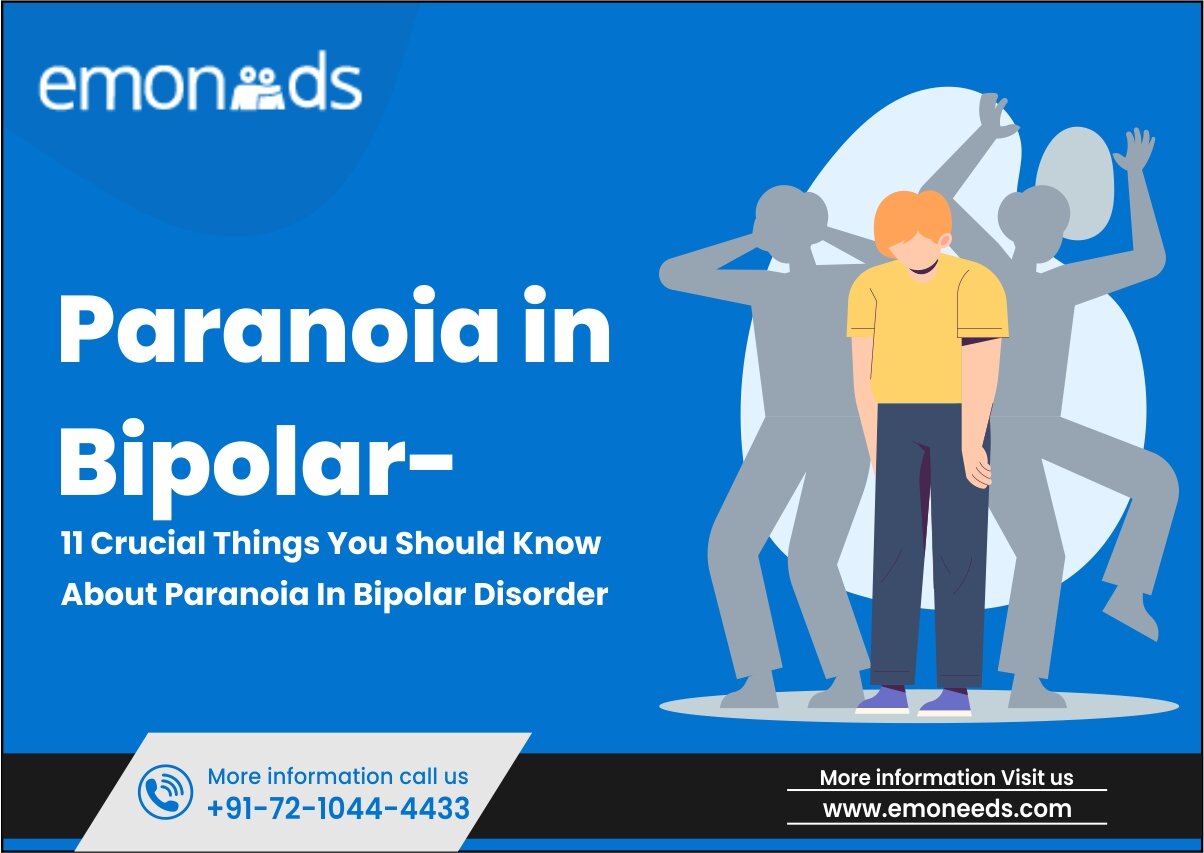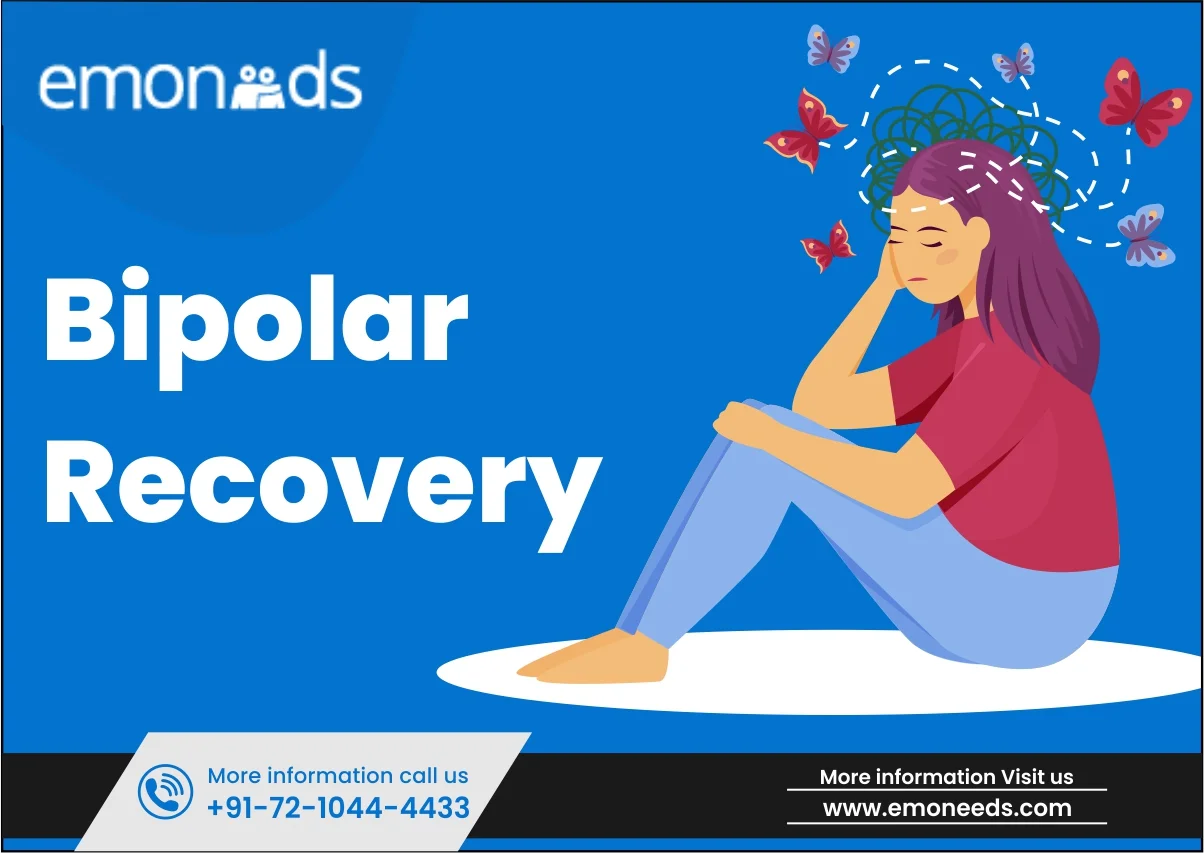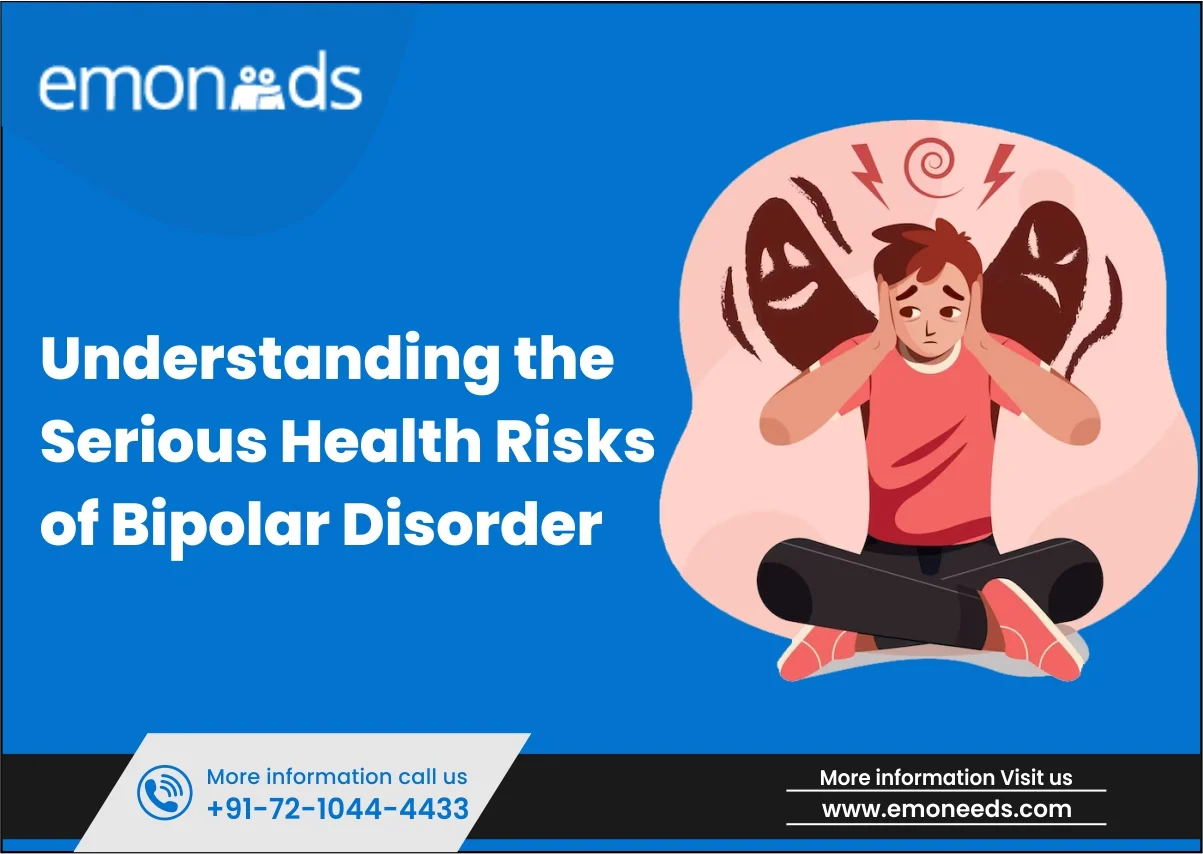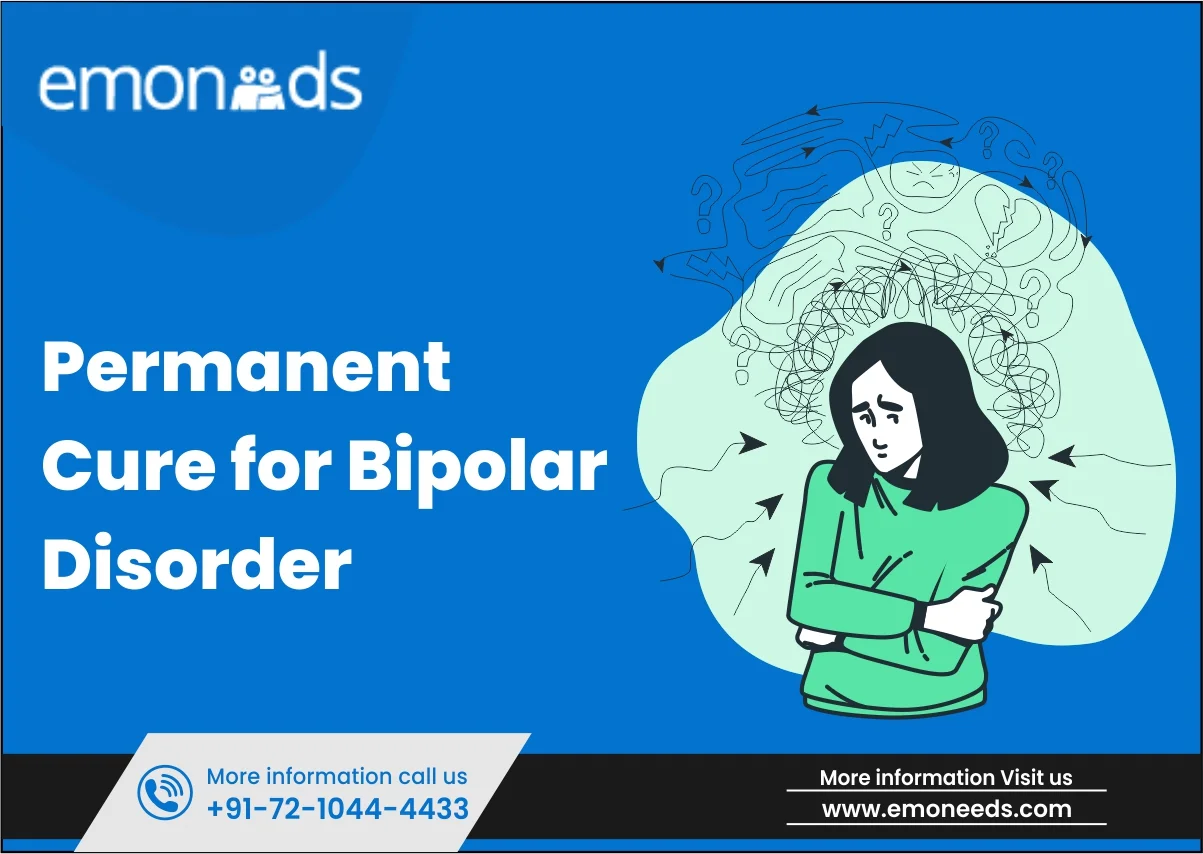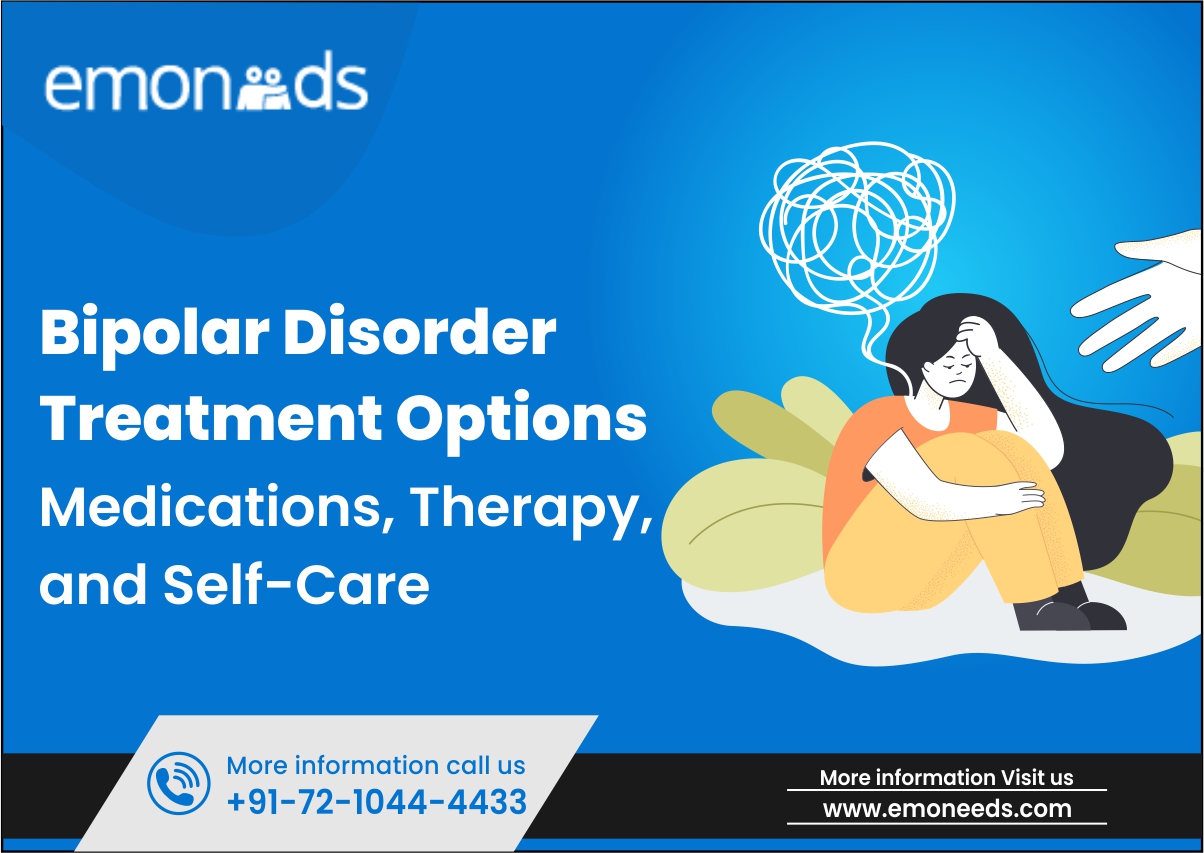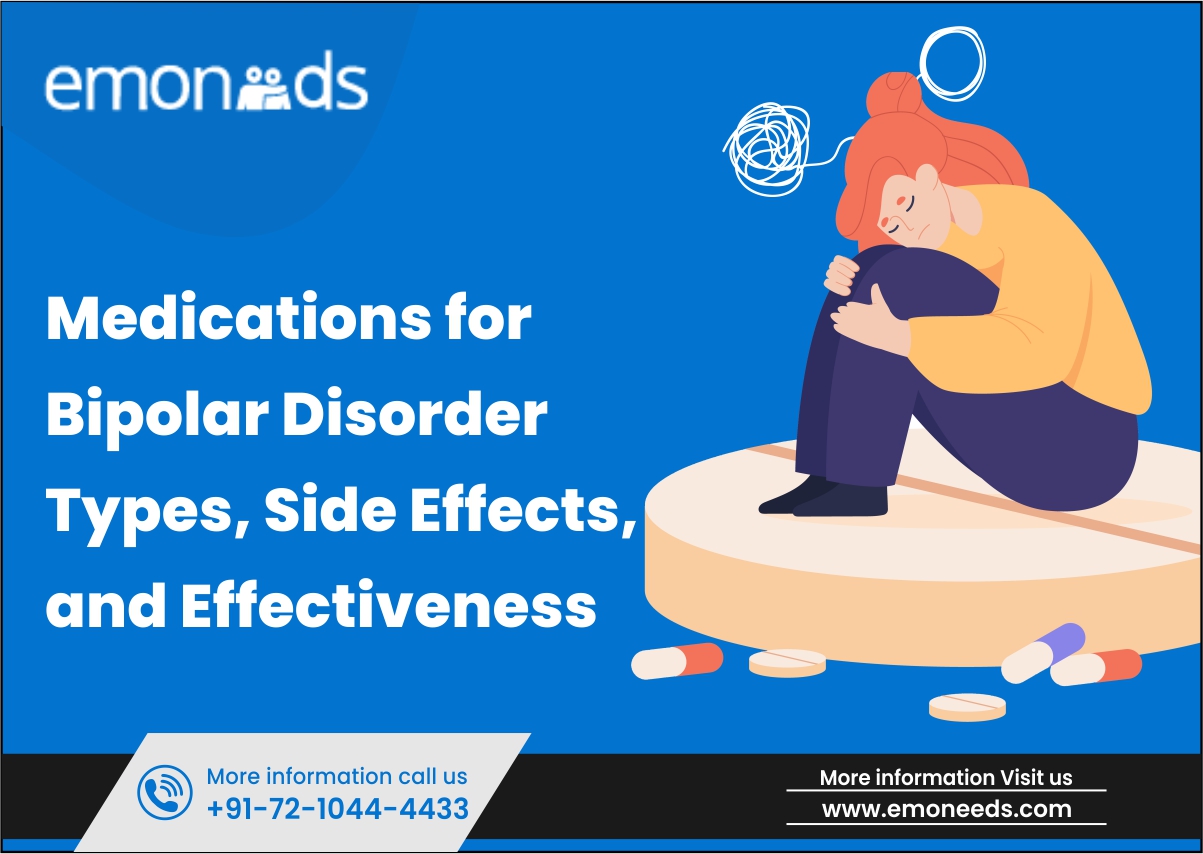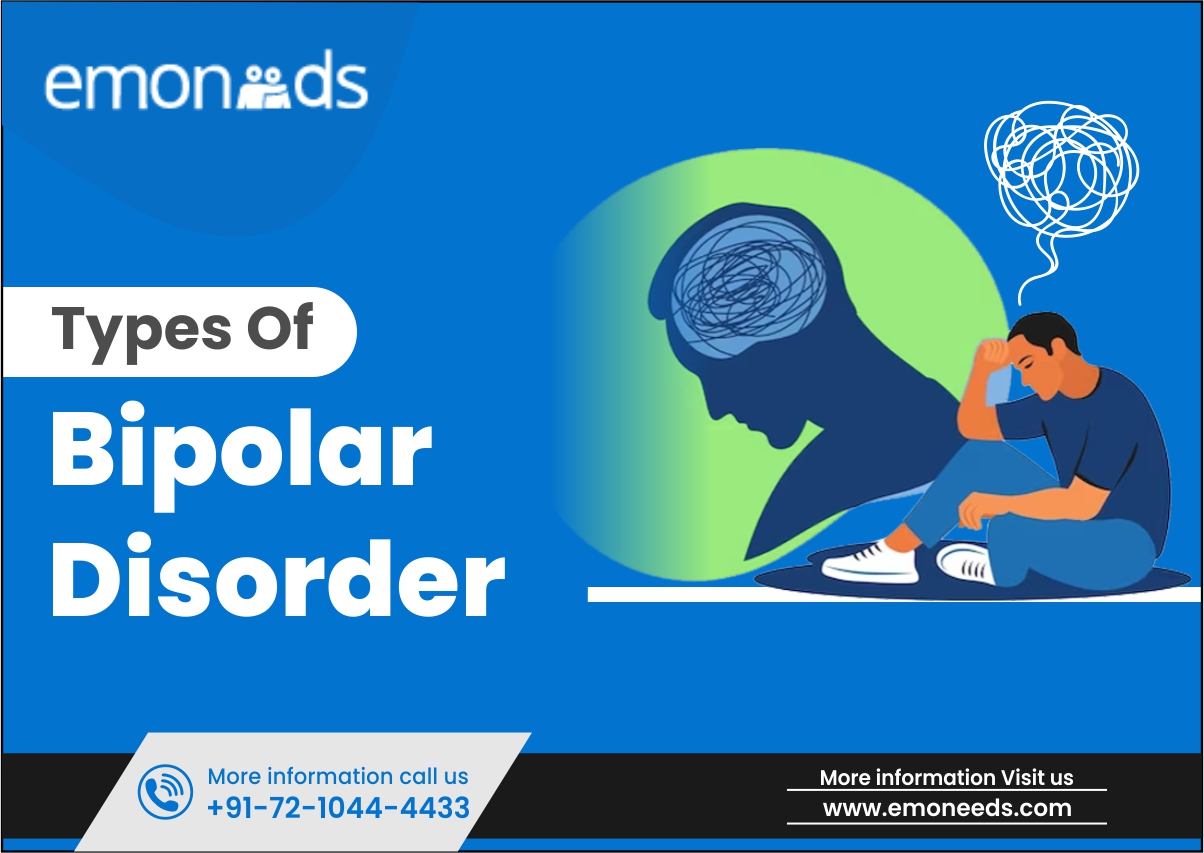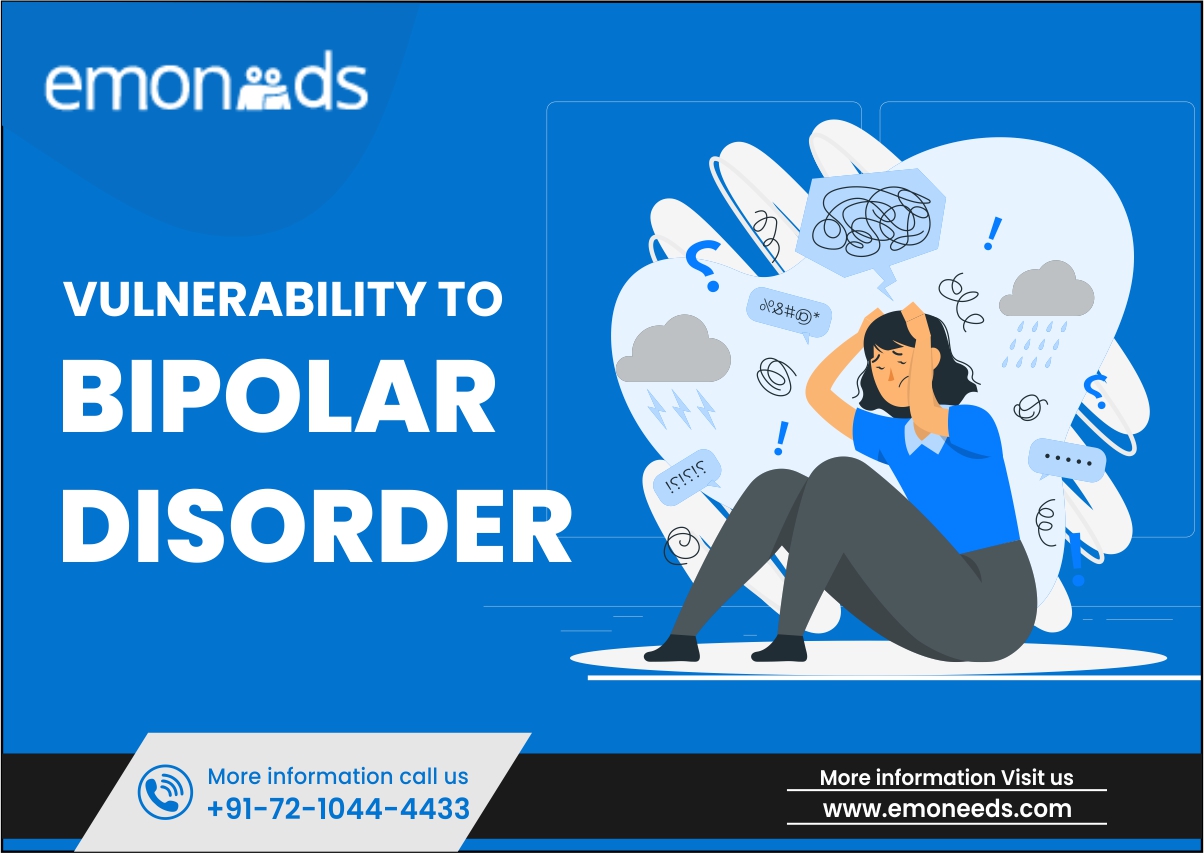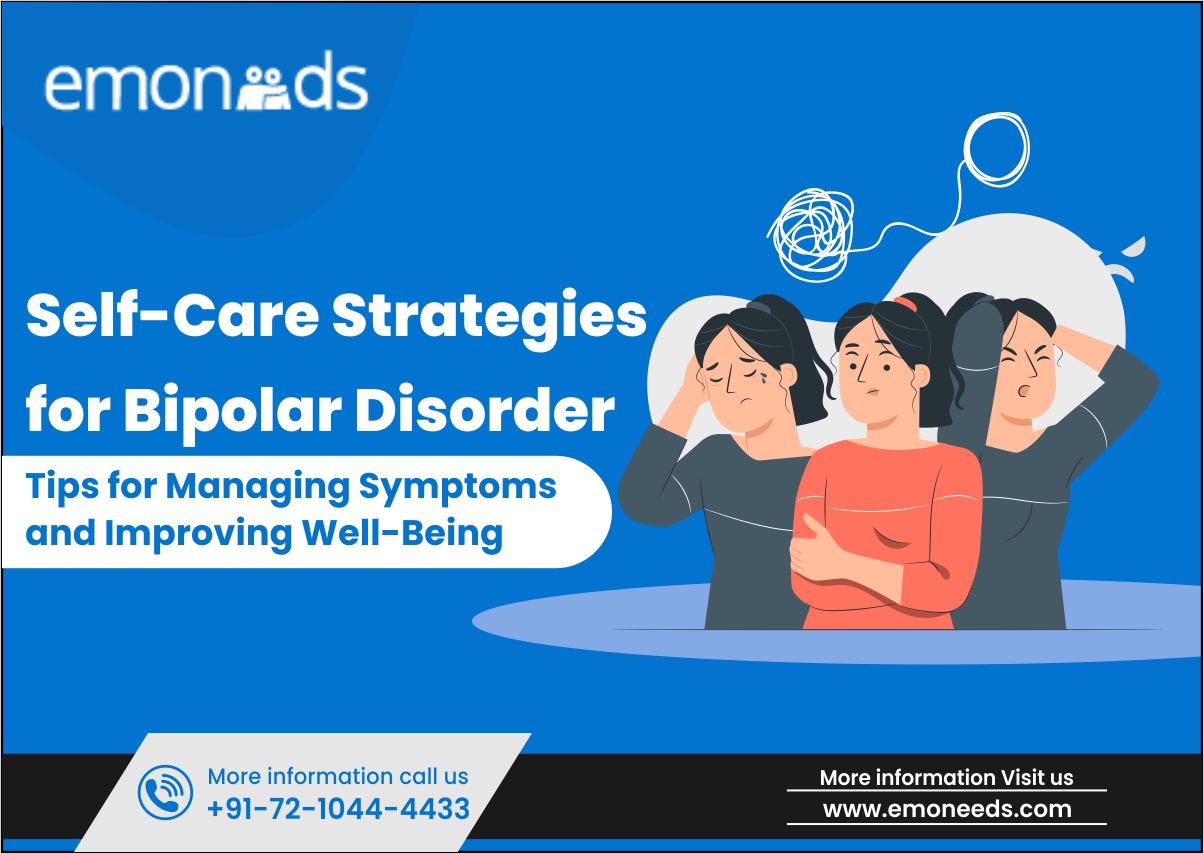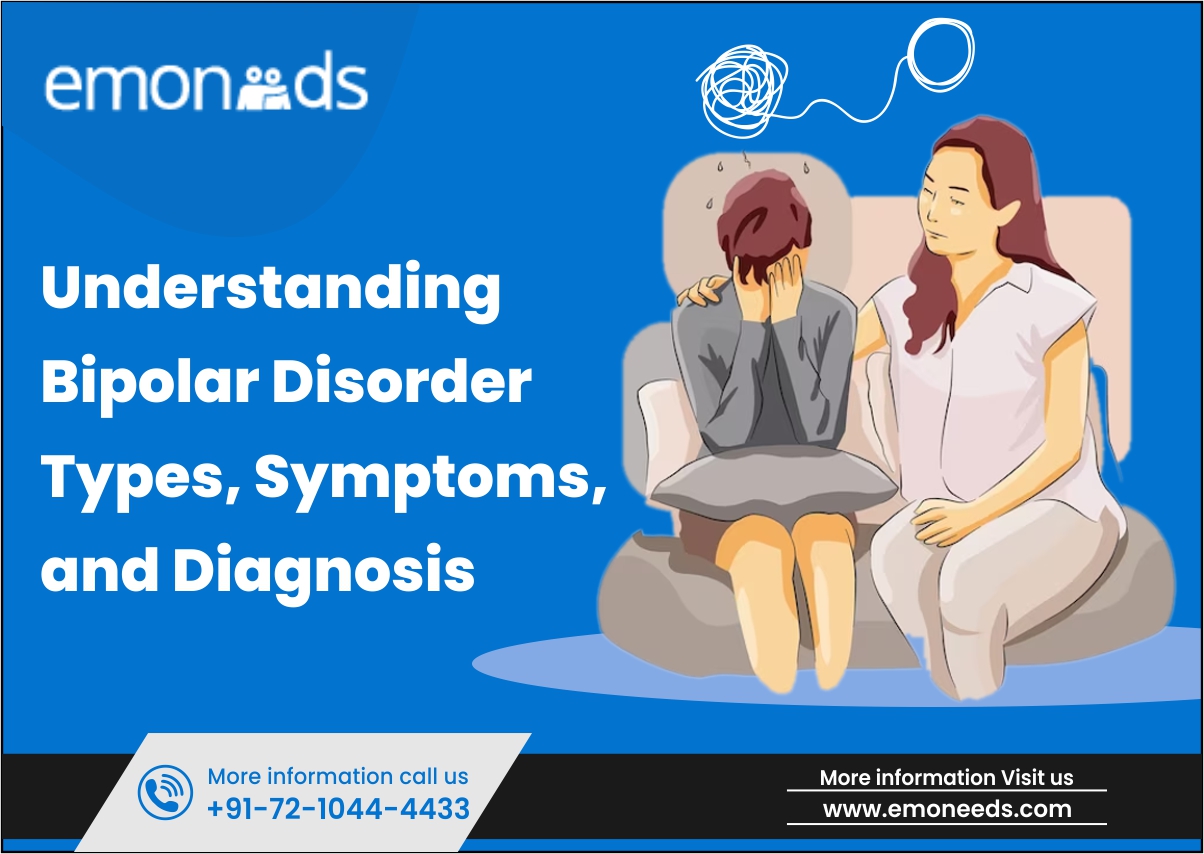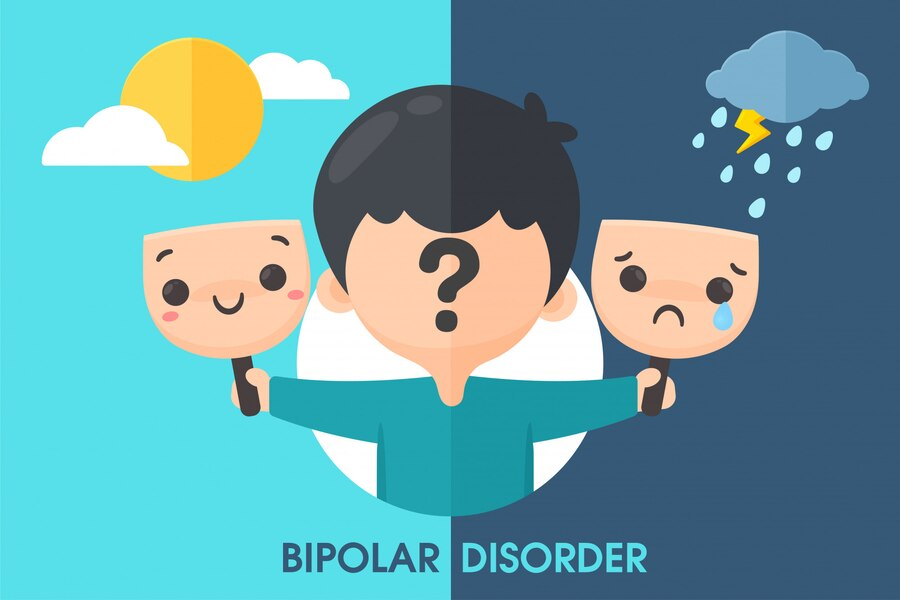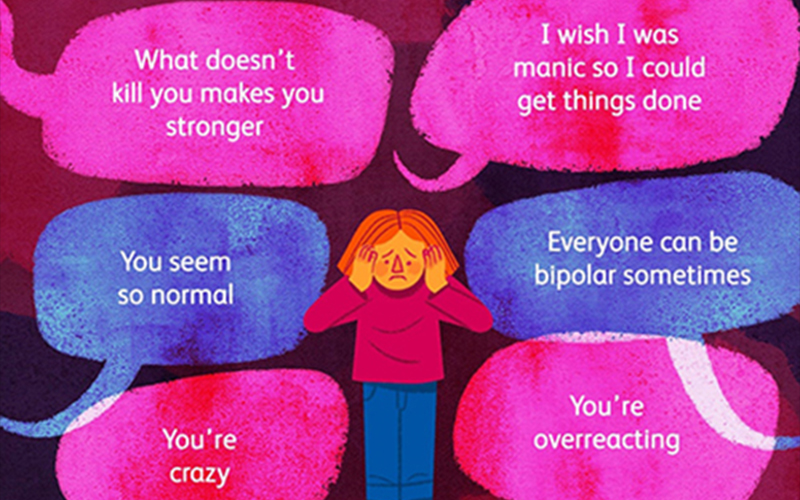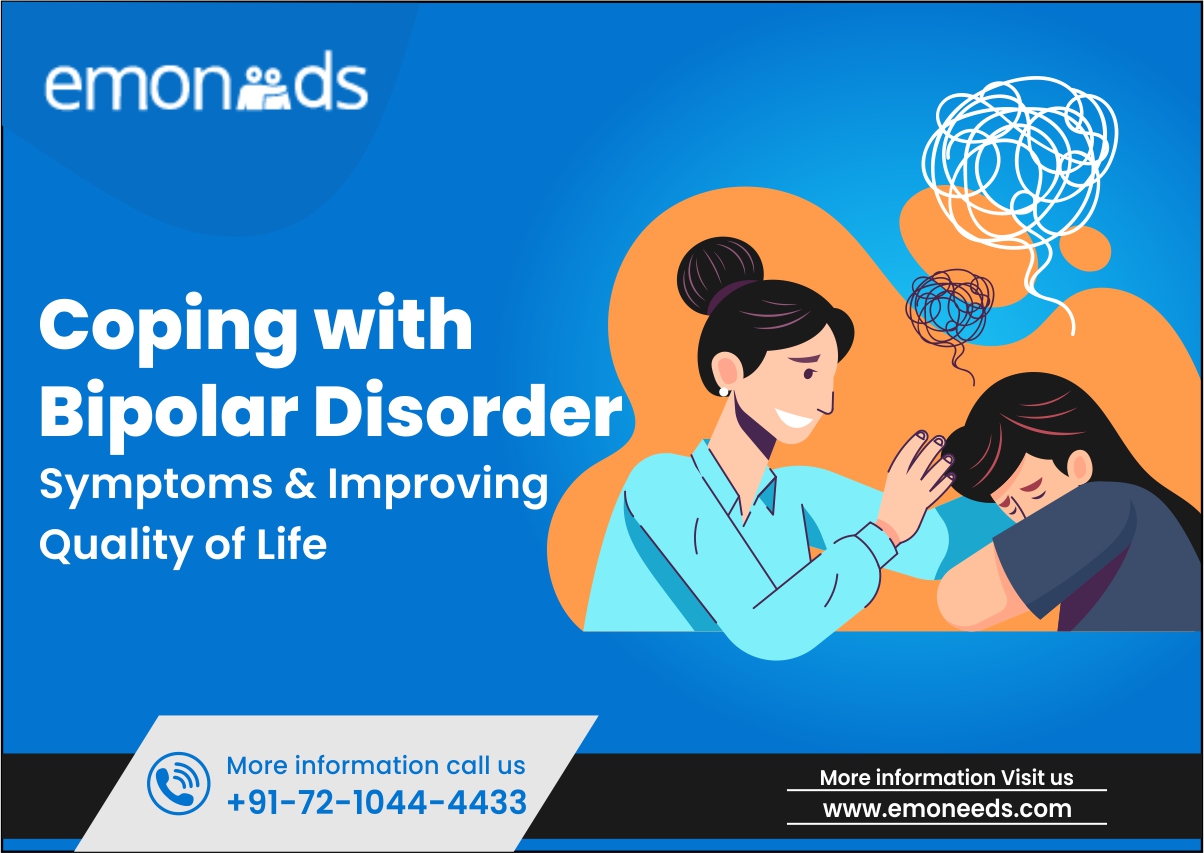
- July 31, 2023
- Saloni Kabra
- 0
Living with bipolar disorder presents unique challenges that can significantly impact an individual’s life. The unpredictable shifts between manic and depressive episodes can disrupt relationships, careers, and overall well-being. However, with the right strategies and support, it is possible to manage symptoms effectively and improve the quality of life for those with bipolar disorder. In this blog, we will explore practical coping mechanisms and lifestyle adjustments that can help individuals navigate the complexities of bipolar disorder.
Table of Contents
ToggleUnderstanding Bipolar Disorder
Bipolar disorder is a complex mental health condition characterized by distinct periods of mania and depression. It encompasses various types, including bipolar I, bipolar II, and cyclothymic disorder. Understanding the causes and triggers of bipolar episodes is essential for effectively managing the condition. While the exact cause remains unknown, research suggests that genetic, environmental, and chemical factors may contribute to its development.
During manic episodes, individuals experience elevated moods, increased energy levels, and impulsive behavior. Depressive episodes, on the other hand, involve persistent sadness, fatigue, and feelings of hopelessness. Mixed episodes may combine symptoms of both mania and depression, leading to heightened emotional and cognitive challenges.
Related Blog – बाइपोलर डिसऑर्डर क्या होता है? इसके लक्षण क्या होते हैं
Seeking Professional Help
If you suspect that you may have bipolar disorder, seeking professional help is crucial. A qualified psychiatrist or mental health professional can provide an accurate diagnosis, develop a personalized treatment plan, and monitor your progress. Therapists and support groups can also play a significant role in managing bipolar disorder, offering a safe space to discuss experiences and learn coping strategies.
Treatment options typically include a combination of medication and therapy. Medications such as mood stabilizers, antidepressants, and antipsychotics may help manage symptoms. Therapy, such as cognitive-behavioral therapy (CBT), can assist in identifying triggers, changing negative thought patterns, and developing effective coping skills.
Creating a Supportive Environment
Building a support system is vital for individuals with bipolar disorder. Surrounding yourself with understanding and empathetic family members and friends can make a significant difference in your journey. Communicating openly about bipolar disorder can help dispel misunderstandings and reduce stigma.
Related Blog – Bipolar Disorder Treatment Options: Medications, Therapy, and Self-Care
It’s important to educate your loved ones about bipolar disorder so they can better comprehend the challenges you face. Encourage them to learn about the condition through reputable sources and engage in open conversations. This mutual understanding will foster a supportive environment where you feel comfortable discussing your experiences and seeking assistance when needed.
Developing Coping Mechanisms
Coping mechanisms are essential tools for managing the daily challenges of bipolar disorder. Healthy strategies can help regulate emotions, reduce stress, and improve overall well-being. Engaging in regular exercise, such as walking, jogging, or yoga, has been shown to have a positive impact on mood stability. Exercise releases endorphins, which can improve mood and reduce anxiety.
Practicing mindfulness and relaxation techniques, such as deep breathing exercises and meditation, can also be beneficial. These practices help calm the mind, increase self-awareness, and enhance emotional resilience. Establishing a consistent daily routine, including regular sleep patterns and meal times, can provide stability and minimize mood swings.
Medication Management
Taking prescribed medications as directed is crucial for effectively managing bipolar disorder. It is essential to work closely with your healthcare provider to find the right medications and dosages that work best for you. Be aware of potential side effects and communicate any concerns or adverse reactions promptly.
Tracking your symptoms and medication effectiveness can help you and your healthcare provider make informed decisions about treatment adjustments. Maintain a journal where you can record your moods, sleep patterns, and any triggers or stressors you may encounter. This documentation will assist in identifying patterns and tailoring your treatment plan accordingly.
Related Blog – Medications for Bipolar Disorder Types, Side Effects, and Effectiveness
Recognizing Early Warning Signs
Recognizing early warning signs of mood episodes can empower you to take proactive steps to prevent or minimize the impact of an episode. Pay attention to subtle changes in your mood, sleep patterns, energy levels, and overall well-being. Share this information with your support network so they can also help identify signs and offer support when needed.
Developing a personalized plan for managing early warning signs can be highly beneficial. This plan may involve implementing specific coping mechanisms, seeking professional assistance, or temporarily adjusting your routine to prioritize self-care.
Navigating Workplace and Relationships
Managing bipolar disorder in the workplace can present unique challenges. Consider disclosing your condition to trusted colleagues or supervisors, as they may provide necessary accommodations or support. Establishing open lines of communication and setting realistic expectations with your employer can foster a supportive work environment.
In relationships, clear and honest communication is essential. Educate your partner, family, and friends about bipolar disorder to help them understand the condition better. Be proactive in expressing your needs, establishing boundaries, and seeking compromises. Engage in couples or family therapy if necessary, as it can provide a safe space to address relationship challenges and strengthen bonds.
Creating a Crisis Plan
During a severe episode of bipolar disorder, having a crisis plan in place is like having a safety net to rely on. This plan should detail clear and specific steps to be taken during a crisis, ensuring swift action and appropriate support. Include emergency contact information for your healthcare providers and therapists, as well as trusted family members or friends who can offer immediate assistance. Communicate this plan openly with your support system, so everyone is aware of their roles and responsibilities. By doing so, you can ensure a coordinated response and provide yourself with the best possible chance of navigating the crisis effectively.
In the crisis plan, outline warning signs that indicate the onset of severe episodes, such as escalating mood swings or increased agitation. Specify which coping mechanisms or interventions have been effective in the past and include them in the plan. Having this information readily available will help your support system respond promptly and appropriately during a crisis. Remember, a crisis plan is not a sign of weakness, but rather a proactive measure to safeguard your well-being and enhance the support you receive during challenging times.
Related Blog – Self-Care Strategies for Bipolar Disorder: Tips for Managing Symptoms and Improving Well-Being
Lifestyle Adjustments
Lifestyle adjustments play a pivotal role in managing bipolar disorder and promoting stability. A consistent and healthy sleep routine is paramount, as irregular sleep patterns can trigger mood episodes. Aim for regular bedtimes and wake-up times, ensuring you get the recommended hours of sleep each night. Prioritizing sleep hygiene, such as creating a calming bedtime routine and limiting screen time before sleep, can further improve sleep quality.
Maintaining a balanced diet is equally vital for individuals with bipolar disorder. Consuming a variety of nutrient-rich foods, such as fruits, vegetables, whole grains, and lean proteins, supports overall well-being. Avoiding excessive caffeine and sugary snacks can help stabilize energy levels and prevent mood swings. Equally important is moderating alcohol and substance use, as these substances can disrupt mood stability and interfere with prescribed medications. By creating a supportive environment and adopting healthier lifestyle habits, individuals with bipolar disorder can enhance their quality of life and better manage their symptoms.
Overcoming Challenges and Celebrating Successes
Living with bipolar disorder presents its share of obstacles, but it’s crucial to maintain hope and optimism. Recovery is indeed possible with the right support and coping strategies. Surround yourself with positive influences, whether it’s understanding friends, supportive family members, or a community of individuals with similar experiences. Draw inspiration from those who have triumphed over the challenges of bipolar disorder, as their success stories can provide motivation and reassurance.
In your journey, remember to celebrate even the smallest achievements. No matter how seemingly insignificant, every step forward is a testament to your strength and resilience. Acknowledge your progress in managing symptoms and making lifestyle adjustments to improve your overall quality of life. By focusing on the positives and embracing the possibilities for growth, you can find empowerment and hope amidst the challenges of bipolar disorder.
Related Blog – Understanding Bipolar Disorder Types, Symptoms, and Diagnosis
Conclusion
Coping with bipolar disorder requires a comprehensive approach that combines professional help, a supportive environment, and the implementation of healthy coping mechanisms. By seeking appropriate treatment, building a strong support system, and making lifestyle adjustments, individuals with bipolar disorder can effectively manage their symptoms and lead fulfilling lives. For valuable information, support, and connections, consider exploring Emoneeds. Together, we can overcome the challenges of bipolar disorder and create a brighter future. You are not alone—reach out and take the necessary steps toward managing symptoms and leading a fulfilling life.
